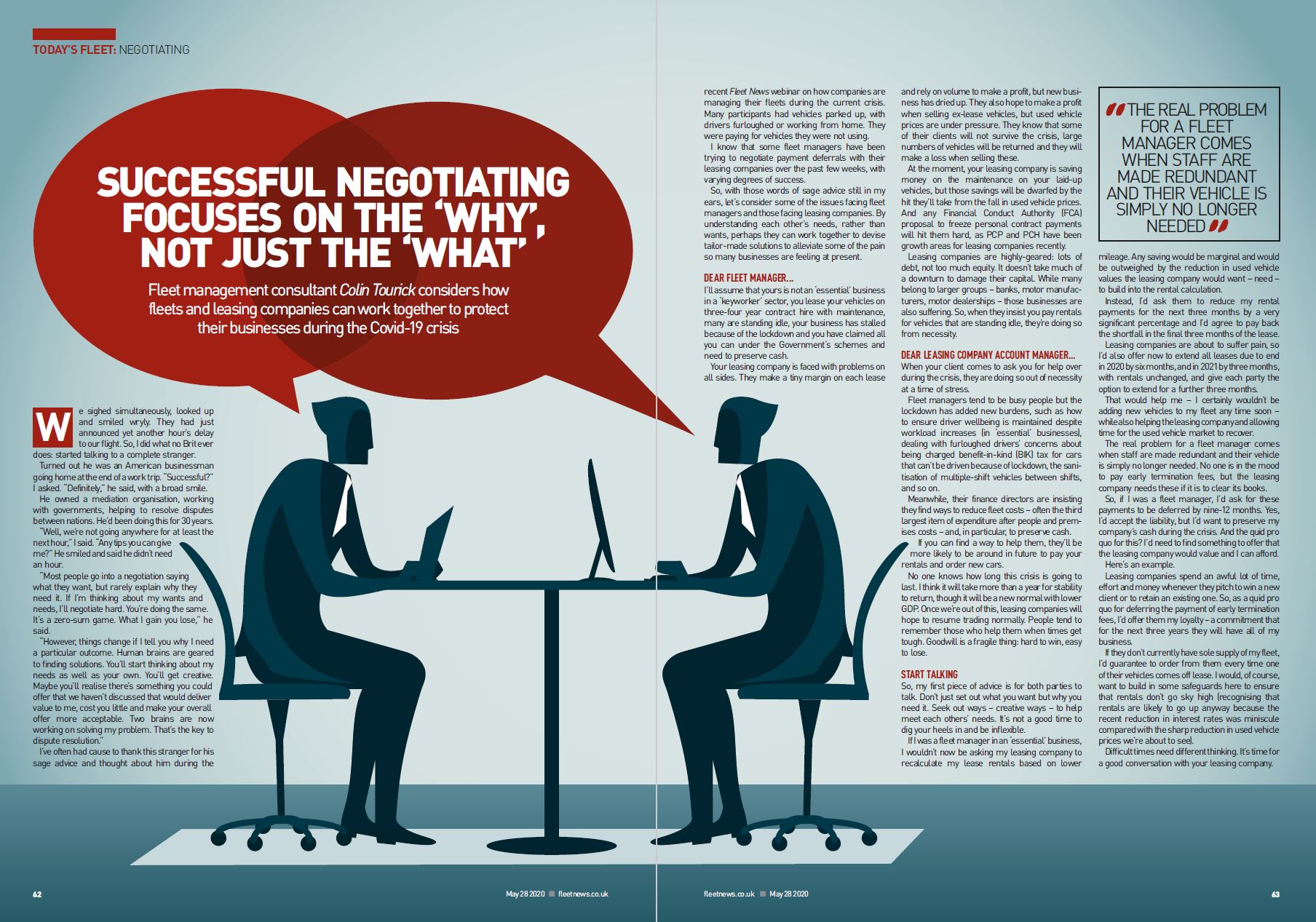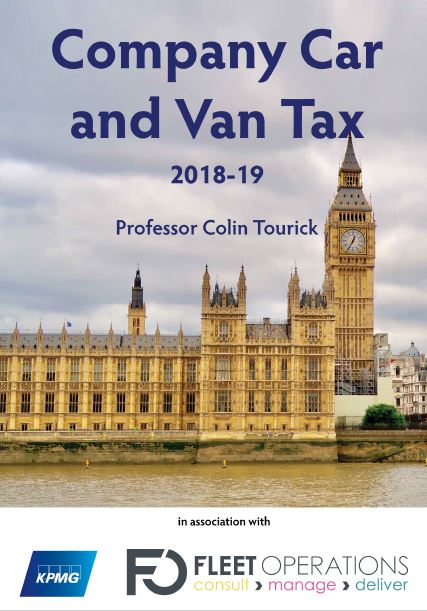
Now more than ever, we need win-win solutions
We sighed simultaneously, looked up and smiled wryly. They had just announced yet another hour’s delay to our flight. So I did what no Brit ever does: started talking to a complete stranger.
Turned out he was an American businessman going home at the end of a work trip. “Successful?”, I asked. “Definitely”, he said, with a broad smile.
He told me he owned a mediation organisation. “Matrimonial? Business disputes?” I asked. And he said no, he only worked with governments, helping resolve disputes between nations. He’d been doing this for thirty years.
“Well, we’re not going anywhere for at least the next hour”, I said. “Any tips you can give me?”
He smiled and said he didn’t need an hour. “Most people go into a negotiation saying what they want but rarely explain why they need it. If I’m thinking about my wants and needs I’ll negotiate hard. You’re doing the same. It’s a zero sum game. What I gain you lose. However, things change if I tell you why I need a particular outcome. Human brains are geared to finding solutions. You’ll start thinking about my needs as well as your own. You’ll get creative. Maybe you’ll realise there’s something you could offer that we haven’t discussed that would deliver value to me, cost you little and make your overall offer more acceptable. Two brains are now working on solving my problem. That’s the key to dispute resolution.”
I’ve often had cause to thank this stranger for his sage advice and thought about him during the Fleet News webinar on how fleet managers are managing during the current crisis. Many participants had vehicles parked up, with drivers furloughed or working from home. So they were paying for vehicles they were not using.
I know that some fleet managers have been trying to negotiate payment deferrals with their leasing companies over the last few weeks, with varying degrees of success.
So with those words of sage advice still in my ears, I will use the rest of this article to set out, for the benefit of fleet managers, some of the issues facing leasing companies at present, and vice versa. By understanding each others’ needs, rather than wants, perhaps you can work together to devise tailor-made solutions to alleviate some of the pain that so many businesses are feeling at present.
Dear Fleet Manager. I’ll assume that yours is not an ‘essential’ business in a ‘keyworker’ sector; you lease your vehicles on 3-4 year contract hire with budgeted maintenance; many are standing idle; your business has stalled because of the lockdown; you have claimed all you can under the government’s schemes and need to preserve cash.
Your leasing company is faced with problems on all sides. They make a tiny margin on each lease and rely on volume to make a profit, but new business has dried up. They also hope to make a profit when selling ex-lease vehicles, but used vehicle prices are tumbling. They know that some of their clients will not survive the crisis, large numbers of vehicles will be returned and they will make a loss when selling these. At the moment your leasing company is saving money on the maintenance on your laid-up vehicles, but those savings will be dwarfed by the hit they’ll take from the fall in used vehicle prices. And the FCA’s proposal to freeze personal contract payments will hit them hard, as PCP and PCH have been growth areas for leasing companies in recent years.
Leasing companies are highly-geared: lots of debt, not too much equity. It doesn’t take much of a downturn to damage their capital. Whilst many of them belong to larger groups – banks, motor manufacturers, motor dealerships – those businesses are suffering too. So when they insist you pay rentals for vehicles that are standing idle, they’re doing so from necessity.
Dear leasing company account manager. When your client comes to ask you for help over during the crisis, they are doing so out of necessity at a time of stress.
Fleet managers tend to be busy people but the lockdown has added new burdens such how to ensure driver wellbeing is maintained despite workload increases (in ‘essential’ businesses); dealing with furloughed drivers’ concerns about being charged benefit in kind tax for cars that can’t be driven because of lockdown, the sanitisation of multiple-shift vehicles between shifts, and so on. And meanwhile their finance directors are insisting they find ways to reduce fleet costs – often the third largest item of expenditure after people and premises costs – and in particular to preserve cash.
If you can find a way to help them they’ll be more likely to be around in future to pay your rentals and order new cars.
No-one knows how long this crisis is going to last. I think it will take more than a year for stability to return, though it will be a new normal with lower GDP. Once we’re out of this, leasing companies will hope to resume trading normally. People tend to remember those who help them when times get tough. Goodwill is a fragile thing: hard to win, easy to lose.
So my first piece of advice is for both parties to talk. Don’t just set out what you want but why you need it. Seek out ways – creative ways – to help meet each others’ needs. It’s not a good time to dig your heels in and be inflexible.
If I was a fleet manager that was not an ‘essential’ business, I wouldn’t now be asking my leasing company to recalculate my lease rentals based on lower mileage. Any saving would be marginal and would be outweighed by the reduction in used vehicle values the leasing company would want – need – to build into the rental calculation. I’d ask them to reduce my rental payments for the next three months by a very significant percentage and I’d agree to pay back the shortfall in the last three months of the lease.
Leasing companies are about to suffer pain, so I’d also offer now to extend all leases due to end in 2002 by six months, and in 2021 by three months, with rentals unchanged, and give each party the option to extend for a further three months. That would help me – I certainly wouldn’t be adding new vehicles to my fleet any time soon – whilst also helping the leasing company – allowing time for the used vehicle market to recover.
The real problem for a fleet manager comes when staff are made redundant and their vehicle is simply no longer needed. No-one is in the mood to pay early termination fees at present, but the leasing company needs these if it is to clear its books. So, if I was a fleet manager I’d ask for these payments to be deferred by 9-12 months. Yes, I’d accept the liability, but I’d want to preserve my company’s cash during the crisis. And the quid pro quo for this? I’d need to find something to offer that the leasing company would value and that I can afford.
So here’s an example.
Leasing companies spend an awful lot of time, effort and money whenever they pitch to win a new client or to retain an existing one. So as a quid pro quo for deferring the payment of early termination fees, I’d offer them my loyalty – a commitment that for the next three years they will win all of my business. If they don’t currently have sole supply of my fleet I’d guarantee to order from them every time one of their vehicles comes off lease. I would of course want to build in some safeguards here to ensure that rentals don’t go sky high (recognising that rentals are likely to go up anyway because the recent reduction in interest rates was miniscule compared to the sharp reduction in used vehicle prices we’re about to see).
It’s time to have a really good conversation with your leasing company.



